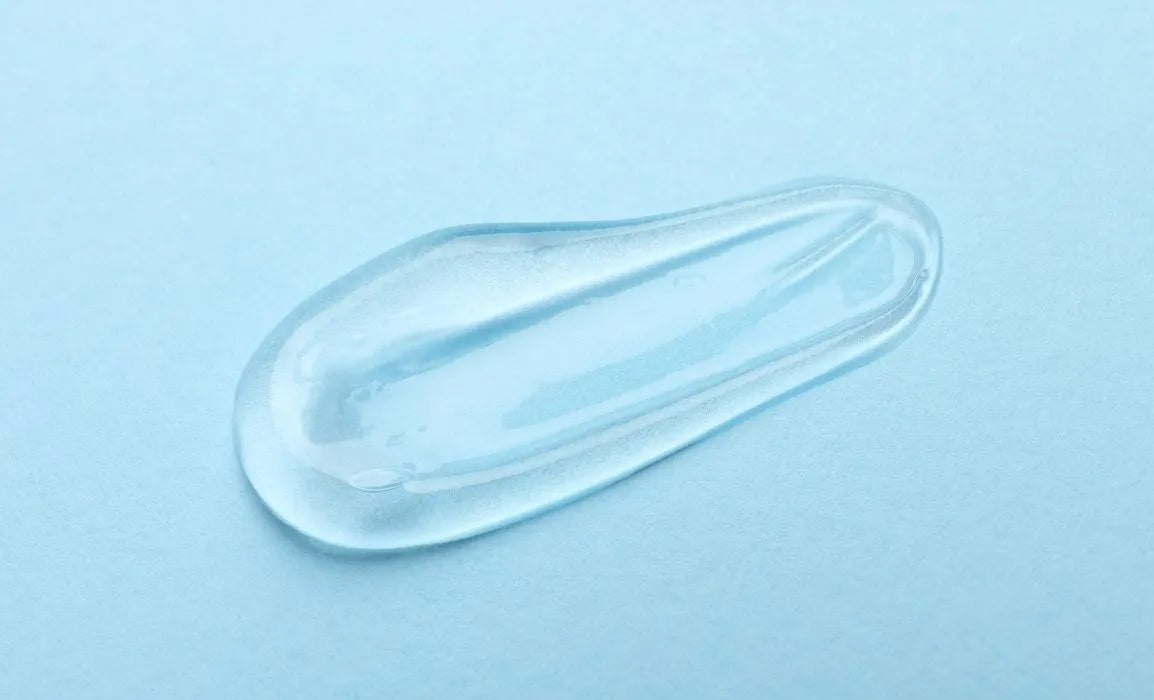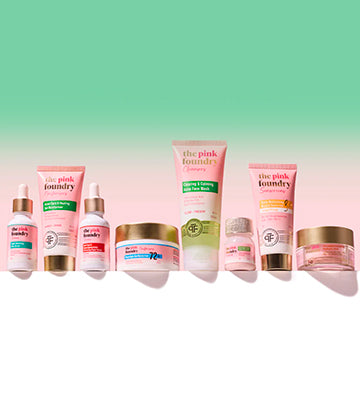Pentylene Glycol

Introduction
The name' pentylene glycol' might not be a familiar term to everyone. However, a little in-depth reading of the skincare product label might be helpful. This is quite a common ingredient in most skincare products, mainly because of its incredible hydrating properties.
Though the component can be found in plants like sugar beets, to meet its increasing demands, this element is often synthetically manufactured. But why the increasing demand? In this article, we will discuss ‘what is pentylene glycol’, the major benefits it offers, and the reason behind its rising popularity. Read along to know more.
What is pentylene glycol?
Pentylene Glycol is a synthetic chemical that is majorly found in cosmetic formulations. It is a transparent, colourless, odourless, slightly viscous liquid. It is transparent and easily soluble in water.
Moreover, it has incredible water-binding abilities that certify it as a very effective hydrating agent. Additionally, it also qualifies as a humectant as it is efficient in retaining and locking the moisture within the skin's cellular layers.
Also read: What is a humectant?
However, it has very mild preservative properties. Hence, according to the Cosmetics Ingredient Review Association, only 0.001% to 5% of the product is considered safe for use on human skin. Thus, you must ensure the percentage of the ingredients used before applying the skincare product.
The chemical is also found in different hair care products. For instance, you might find it in shampoo, detanglers, and hair spray. Hair colour and other hair styling aids also contain this ingredient. Some beard styling products like oils and shaving creams also contain pentylene glycol.
You will also discover this ingredient in some decorative cosmetics, like your concealer and CC cream. Lipsticks, lip plumpers, lip balms, and lip liners also contain it. Moreover, eyeliner, makeup primer, and makeup remover are some other products containing pentylene glycol.
What does pentylene glycol do in skincare products?
Now that you understand the pentylene glycol meaning, let's find its usefulness for manufacturing skincare products. The three words that best describe Pentylene Glycol are hydrant, preservative, and humectant.
Hence, the chemical has an important role in boosting the efficiency of skincare products. People with dry or combination skin should particularly focus on using products with Pentylene Glycol because the chemical will prove to be very beneficial. However, there are a few other roles it plays in skincare products. They are as follows,
-
Used as a hydrant and humectant
The chemical composition of this component has two alcohol functions (-OH). Hence, it has efficient water-binding capacities, which makes it a hydrophilic compound. Additionally, it can retain the moisture within the skin layers to maintain the standard water content. The inclusion of this ingredient boosts the product's hydrating and moisture-retaining abilities.
-
Used as an excellent solvent
Secondly, it portrays amazing solvent properties. It has the ability to dissolve in various active substances without violently reacting with them. Hence, it is often used to incorporate different other products to stabilise the formulation. You may find other solvents - like hexylene glycol - in your skincare products to enhance their performance and efficacy.
-
Used as a natural preservative
Whenever we hear the word preservative, we term it as something harmful. However, that is not totally wrong; however, that is not always the case. The presence of natural preservatives like pentylene glycol in measured amounts is proven beneficial. This property aids in preventing the growth of microbes and other harmful elements in the product, thus elevating its longevity.
Pentylene glycol benefits in skincare
The different pentylene glycol benefits in skincare are as follows:
-
Moisturisation of the skin barrier
Pentylene glycol aids in hydrating the skin by locking in moisture. It is great for those with dry or parched skin. For instance, the Waterlight Gel Moisturiser contains this substance. With other chemicals like hyaluronic acid and niacinamide, the chemicals in the moisturiser will provide sufficient hydration to your skin.
-
Enhanced penetration of ingredients
Pentylene glycol has the ability to enhance the absorption of other active components into the skin, heightening the efficacy of skincare formulations.
-
Increased shelf life of cosmetic products
Pentylene glycol possesses antibacterial properties, which help hinder harmful microorganisms in cosmetic items. It helps in prolonging their lifespan.
-
Mild for the skin
This component is recognised for its gentle and non-aggravating nature. It is appropriate for delicate skin types with a high risk of inflammation or allergic responses.
-
Maintains the consistency of products
It acts as a solution for different cosmetic components, ensuring that the product has a consistent texture and uniformity.
Precautions while using pentylene glycol
Some precautions to follow while using pentylene glycol are as follows:
-
Perform a patch test
Before you start using skincare products with the chemical, you should go for a patch test. Apply it to a small portion of the skin and wait to see if you get any allergic reaction. You shouldn't use it if you face any itching or irritation on your skin.
Also read: How to do a skin patch test
-
Avoid ingestion
The chemical is only for external application. Ingesting it can cause severe respiratory issues and other problems.
-
Keep away from sensitive areas
You need to stay a little careful while applying pentylene glycol to your skin. Make sure that it does not enter your eyes. Moreover, it should be kept away from mucous membranes. If the chemical comes in contact with sensitive areas of the skin, wash with water immediately.
-
Store properly
Be a little careful about where you store your skincare products containing pentylene glycol. A dry place away from direct sunlight is usually safe.
-
Dermatologist's recommendation
Seeking the opinion of your dermatologist is a good idea before starting to use products with pentylene glycol. They will be able to tell you whether the chemical will reduce the effectiveness of some other ingredients in your skincare regimen.
Conclusion
Pentylene glycol emerges as an exceptional ingredient in the world of skincare. Usually, it is not hazardous to health. It is not toxic or carcinogenic. Even people with sensitive skin types will benefit from using products with this chemical without noticing allergic reactions or breakouts. So, start using products with this ingredient and enjoy its multiple benefits to make your skin appear healthy.


























































